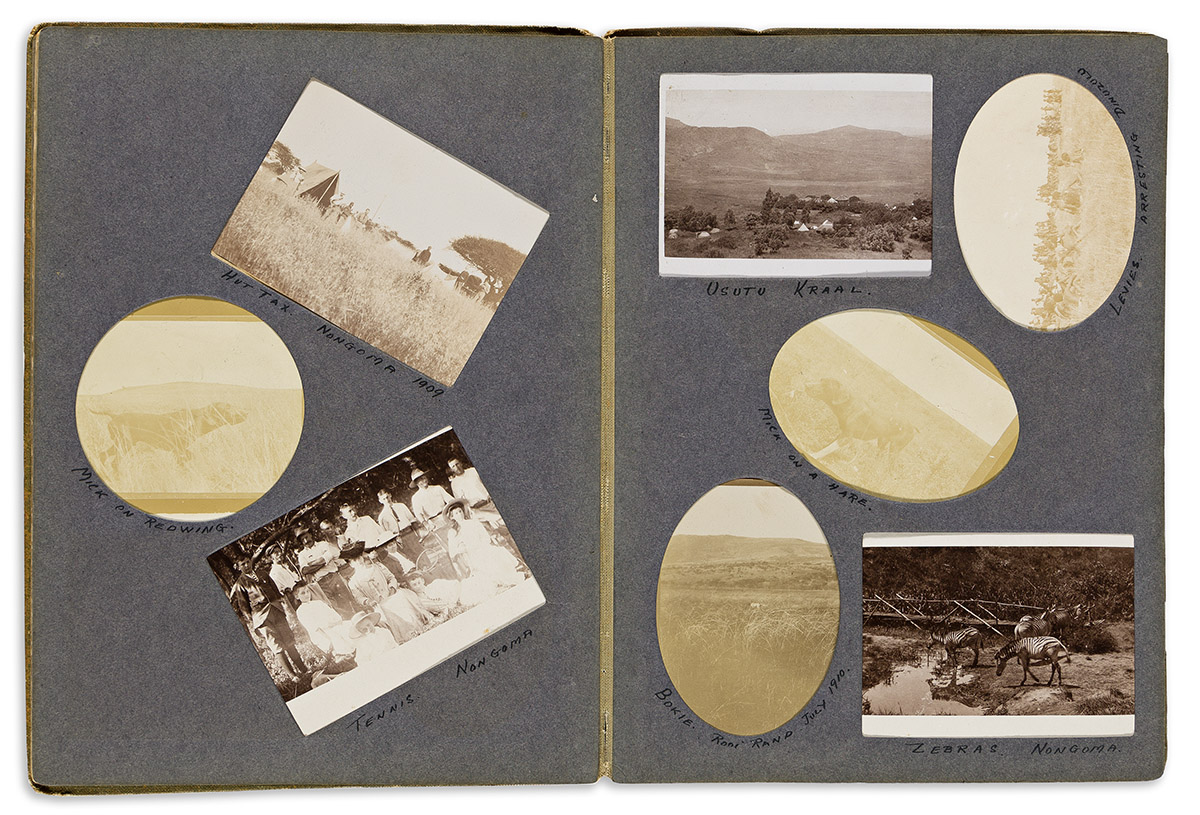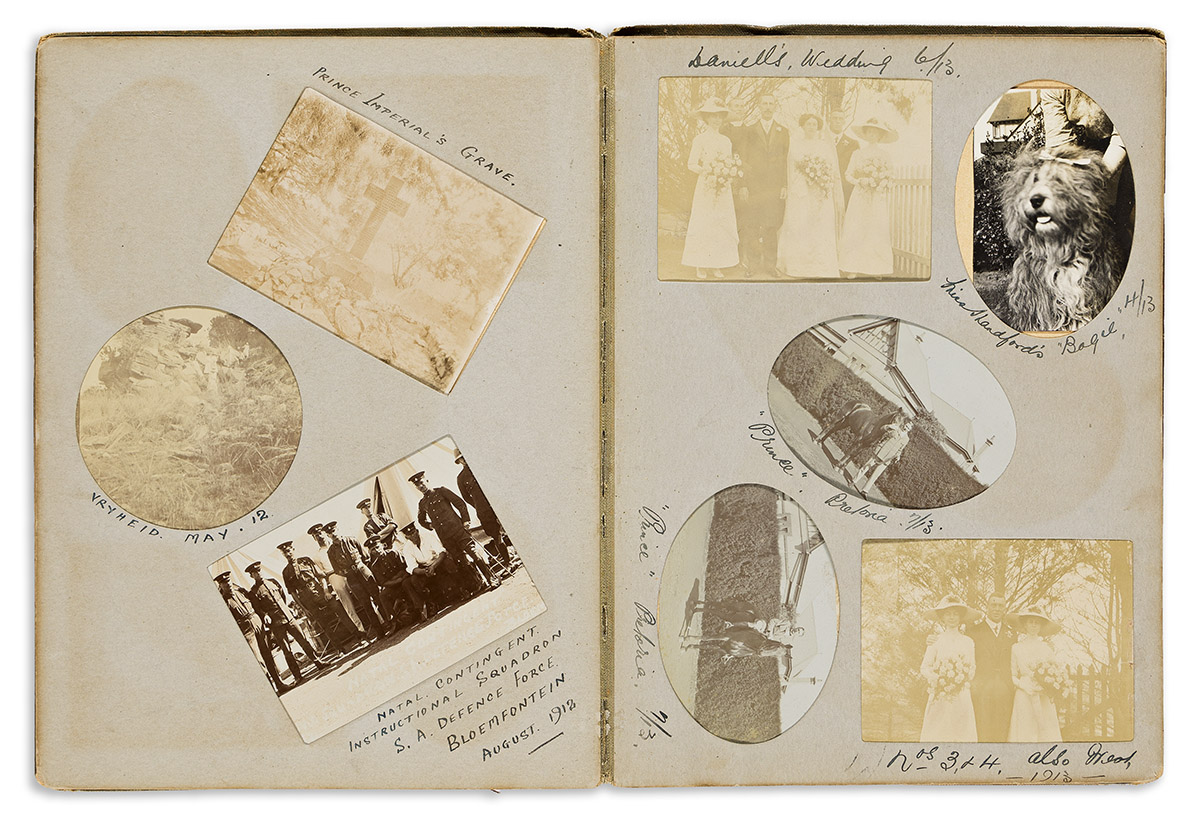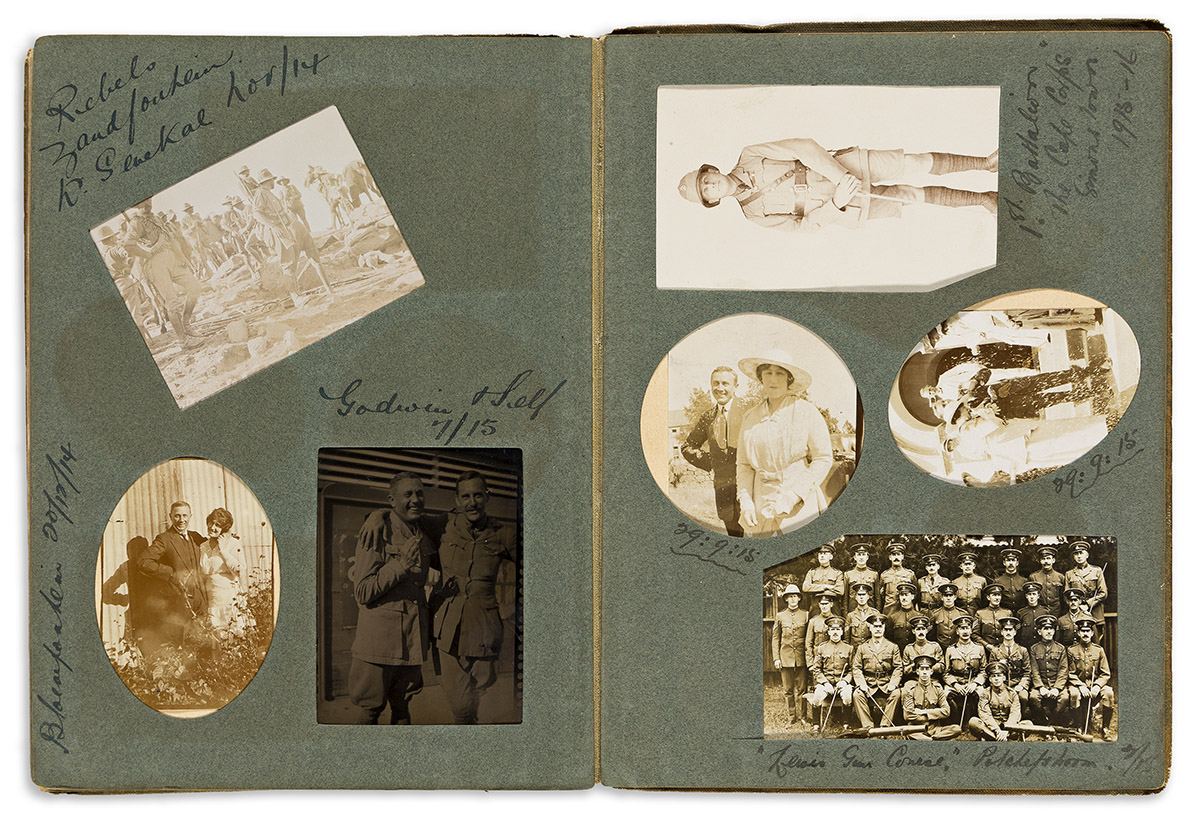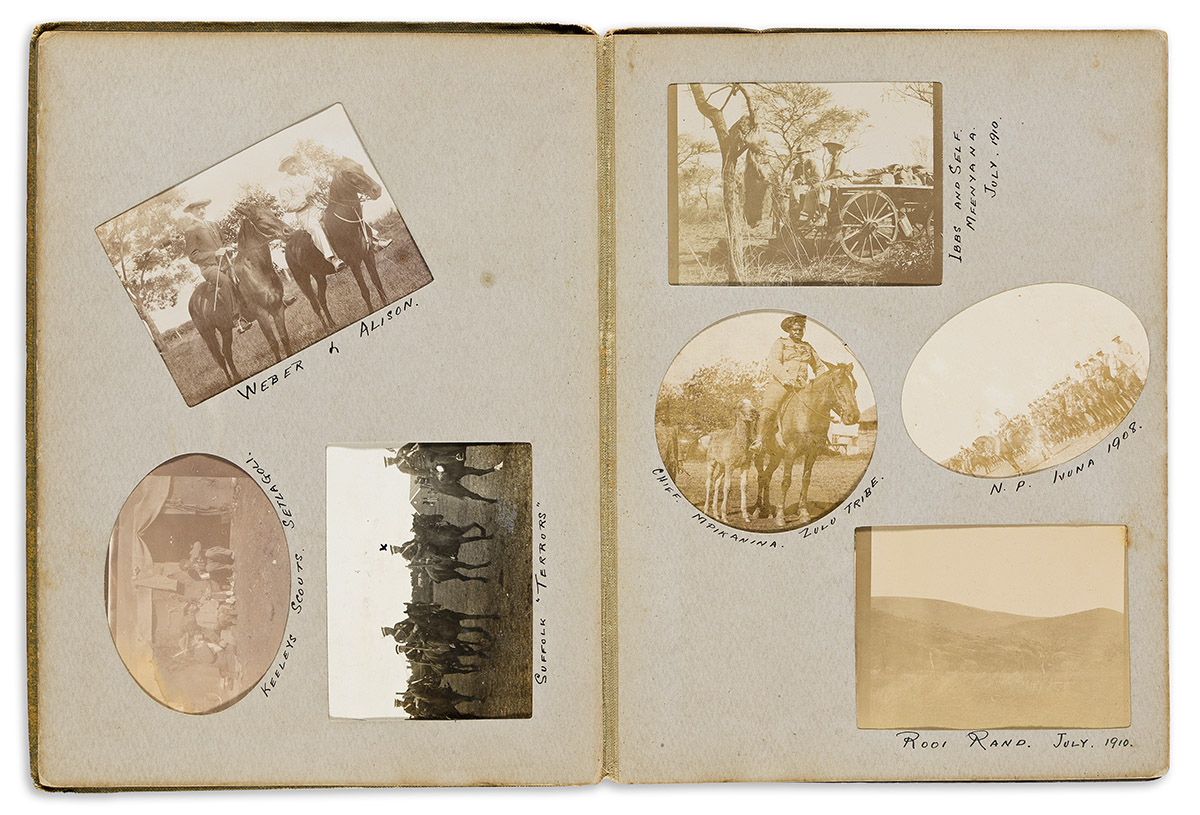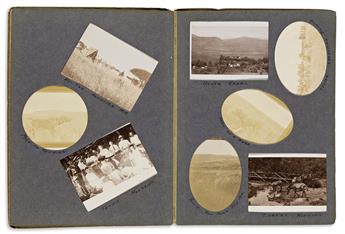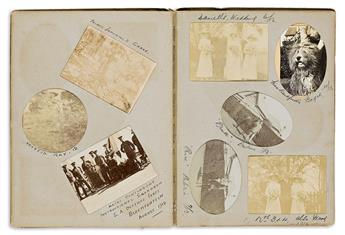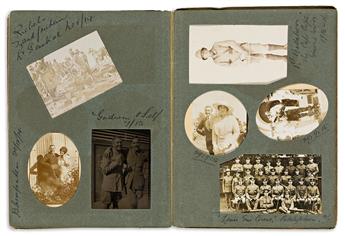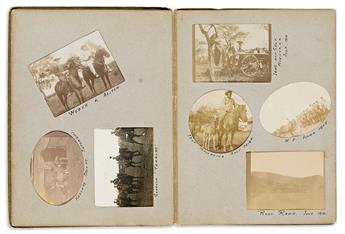Sale 2669 - Lot 21
Unsold
Estimate: $ 3,000 - $ 4,500
(SOUTH AFRICA) An album compiled by a British officer after the Boer War, in part documenting the Zulu Rebellion, with approximately 90 photographs. The album was compiled by a British officer named H.R. Bircham (1879-1949, a newspaper clipping in the front gives his biographical information: being "well known, especially to members of Brand's Horse, as the popular Sergt. Major of the 5th Regiment, during the Rebellion and Lieutenant during the German South-West campaign") who was a Trooper with the Natal Police and, captured the arrest of the King of the Zulus--King Dinuzulu--during the so-called Zulu Rebellion of 1906. This image shows Dinuzulu wearing Western clothing (as is documented) and is captioned "Levies. Arresting Dinuzulu."
The album includes images documenting Bircham's military service (about 25 of the photographs), as well as personal images of his family life. Also included are images of the British collecting a "hut tax," a rare image of the Zulu Chief Prince Mpikanina on horseback with a foal, as well as images of the Keeleys Scouts and Suffolk Terrors (here the owner seems to have marked himself with an x above the image), military groups, the gravesite of the Prince Imperial (Napoleon), British military tents directly next to the Zulu royal residences at Usutu Kraal in Zululand, and more. Silver and printing-out paper prints, most of the images measuring 2¾x4¾ inches (7x12.1 cm.), and slightly smaller, and the reverse, inserted into window mounts recto/verso, some with captions and dates in ink. 4to, green cloth, backstrip perished, worn. 1903-15
This album appears to document the final act of the Zulu Rebellion (December 9, 1907), the British arresting Dinuzulu for treason in relation to the "Levies" or Poll Tax. Per P.S. Thompson, (Historia 58, 2, November 2013), p. 40-69: "The rising, called historically the Zulu Rebellion and now officially the Zulu Uprising of 1906, was the last major act of indigenous resistance to colonial rule in South Africa. The rebellion had many causes arising from the discordant interaction of settler and native societies, but the immediate cause was the imposition of a poll tax, which fell most heavily on and aroused the opposition of the native population. It ended in complete political and military victory for the colonial regime, but latterly it has come to be seen as an early moral victory for the forces of liberation."
Another image notes the use of the British "Hut Tax" in Nongoma directly after in Zululand (the seat of the Zulu monarchy) in 1909 (while King Dinuzulu was on trial for treason), which sent a disproportionate number of Zulu subjects to the mines for decades following. In many ways, the album documents the British Colonial powers at play in the years following their victory in the Boer War.
The album includes images documenting Bircham's military service (about 25 of the photographs), as well as personal images of his family life. Also included are images of the British collecting a "hut tax," a rare image of the Zulu Chief Prince Mpikanina on horseback with a foal, as well as images of the Keeleys Scouts and Suffolk Terrors (here the owner seems to have marked himself with an x above the image), military groups, the gravesite of the Prince Imperial (Napoleon), British military tents directly next to the Zulu royal residences at Usutu Kraal in Zululand, and more. Silver and printing-out paper prints, most of the images measuring 2¾x4¾ inches (7x12.1 cm.), and slightly smaller, and the reverse, inserted into window mounts recto/verso, some with captions and dates in ink. 4to, green cloth, backstrip perished, worn. 1903-15
This album appears to document the final act of the Zulu Rebellion (December 9, 1907), the British arresting Dinuzulu for treason in relation to the "Levies" or Poll Tax. Per P.S. Thompson, (Historia 58, 2, November 2013), p. 40-69: "The rising, called historically the Zulu Rebellion and now officially the Zulu Uprising of 1906, was the last major act of indigenous resistance to colonial rule in South Africa. The rebellion had many causes arising from the discordant interaction of settler and native societies, but the immediate cause was the imposition of a poll tax, which fell most heavily on and aroused the opposition of the native population. It ended in complete political and military victory for the colonial regime, but latterly it has come to be seen as an early moral victory for the forces of liberation."
Another image notes the use of the British "Hut Tax" in Nongoma directly after in Zululand (the seat of the Zulu monarchy) in 1909 (while King Dinuzulu was on trial for treason), which sent a disproportionate number of Zulu subjects to the mines for decades following. In many ways, the album documents the British Colonial powers at play in the years following their victory in the Boer War.
Exhibition Hours
Exhibition Hours
Aliquam vulputate ornare congue. Vestibulum maximus, libero in placerat faucibus, risus nisl molestie massa, ut maximus metus lectus vel lorem.



